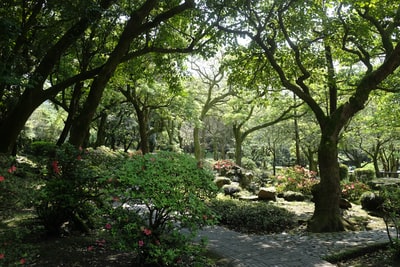
Plants are also multicellular organisms and they also tend to be made up of differentiated cells, tissues and organs.
Tissues
Three types of tissue found in plants can be seen in the table below.
| Tissue type | Function |
| Epidermal tissueMesophyllXylem and phloem | This covers the plantThis carries out photosynthesisThese transport substances throughout the plant |
Organs
Three types of organ that can be found in a plant include:
- stems
- roots
- leaves
A green plant’s leaves have been adapted for photosynthesis and they exhibit a number of features to optimise the amount of sunlight and carbon dioxide they can absorb.
| Feature | Function |
| ChlorophyllStomataVein networkThin structure
Large surface area |
This is important for absorbing sunlightThese allow carbon dioxide to diffuse into the leafThis provides physical support and transports water and carbohydrates around the plantThe short distance means carbon dioxide can diffuse faster into the cells
The larger area optimises the amount of sunlight that can be absorbed into the leaf |
As you would expect, the internal structure of a leaf is also well designed to optimise the efficiency of photosynthesis.
| Feature | Function |
| Waxy cuticleUpper epidermisPalisade mesophyll
Spongy mesophyll Stoma Guard cells Lower epidermis |
This provides protection for the cell but it’s thin structure still allows light energy to be absorbedThis layer is thin and transparent which allows the light to reach the cells more easilyThis layer contains a large number of chloroplasts which are needed to absorb the light energyAir moving through the stoma can easily pass through this layer due to the large number of air spaces
These allow carbon dioxide to enter the leaf and are positioned at the underside to help prevent excess water being lost by transpiration These regulate the amount of water being lost via transpiration from the leaf This is where the majority of stoma are located |